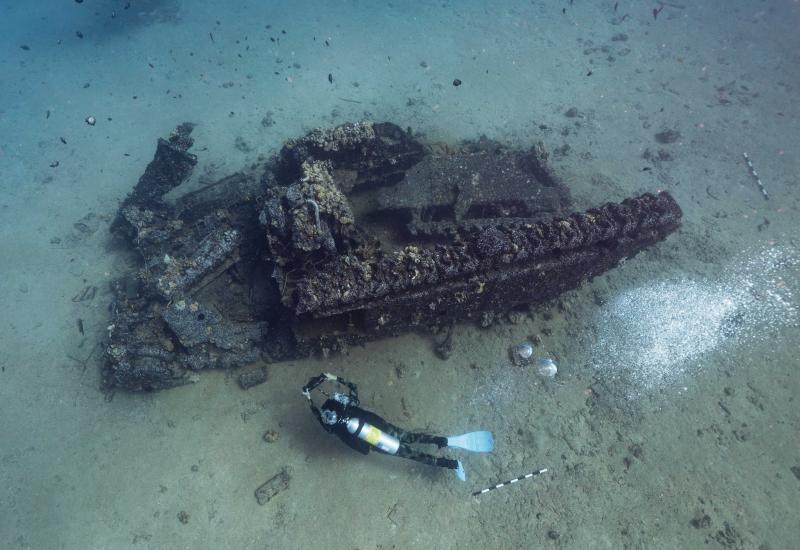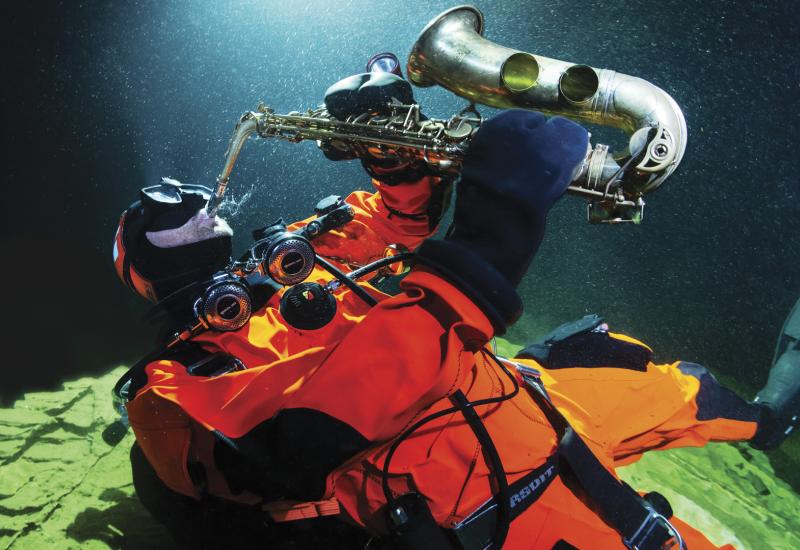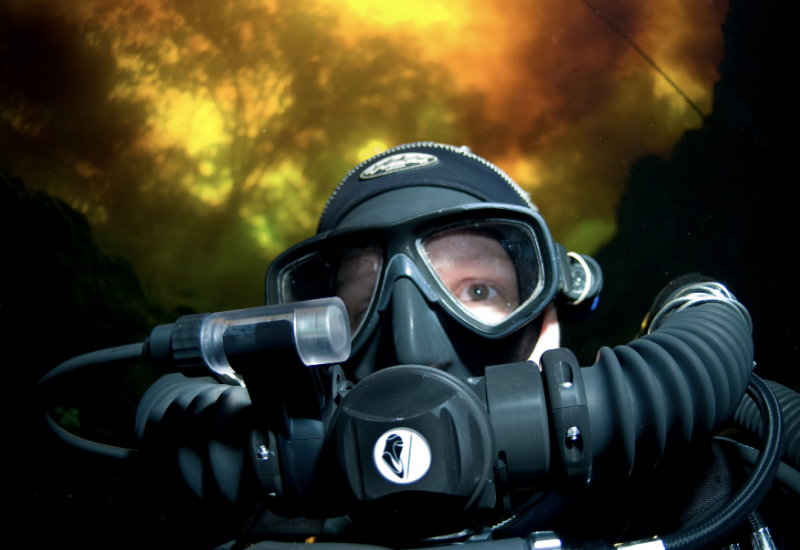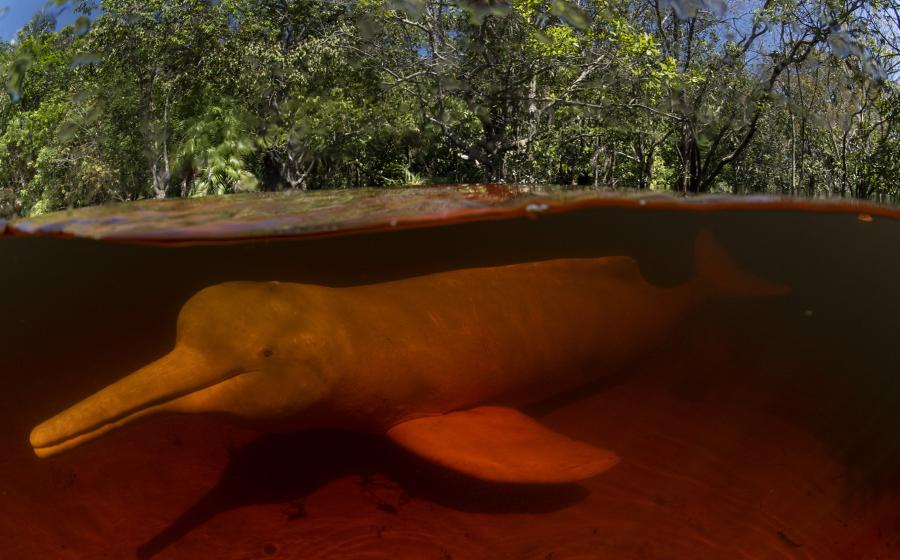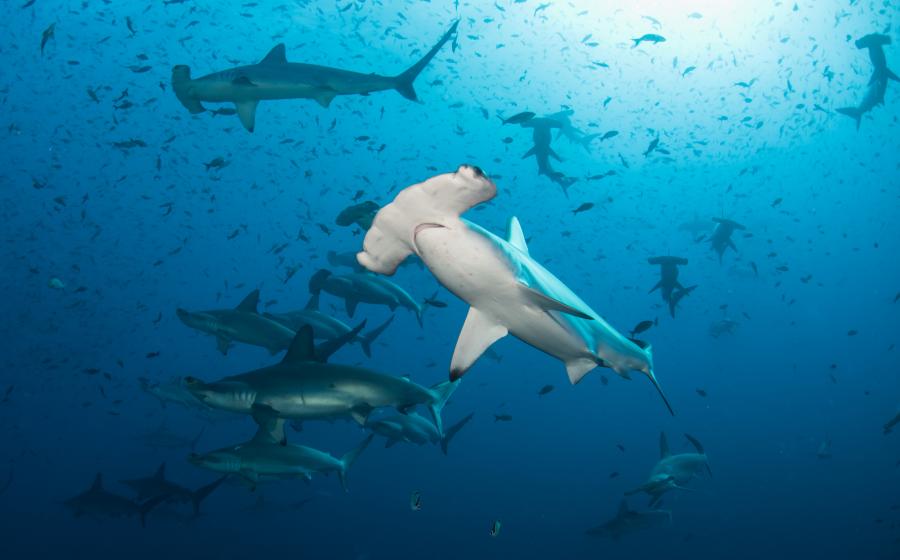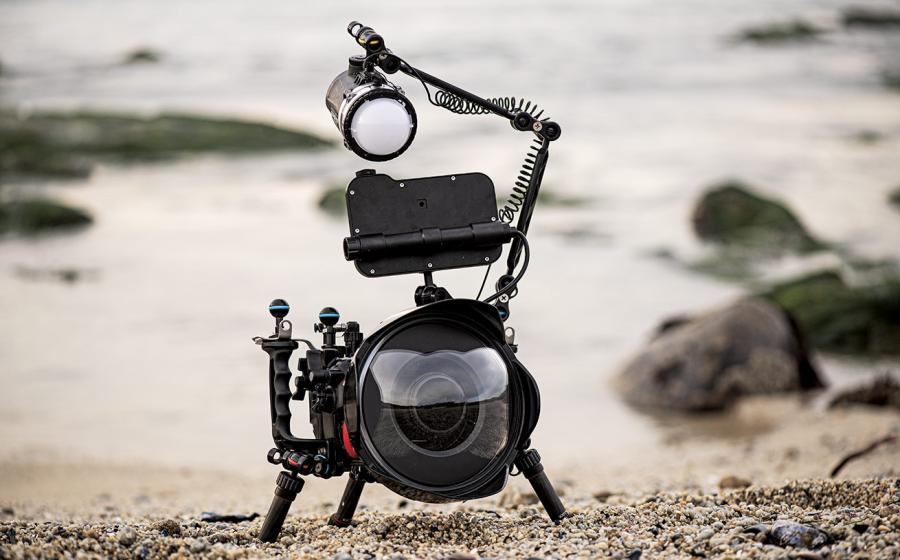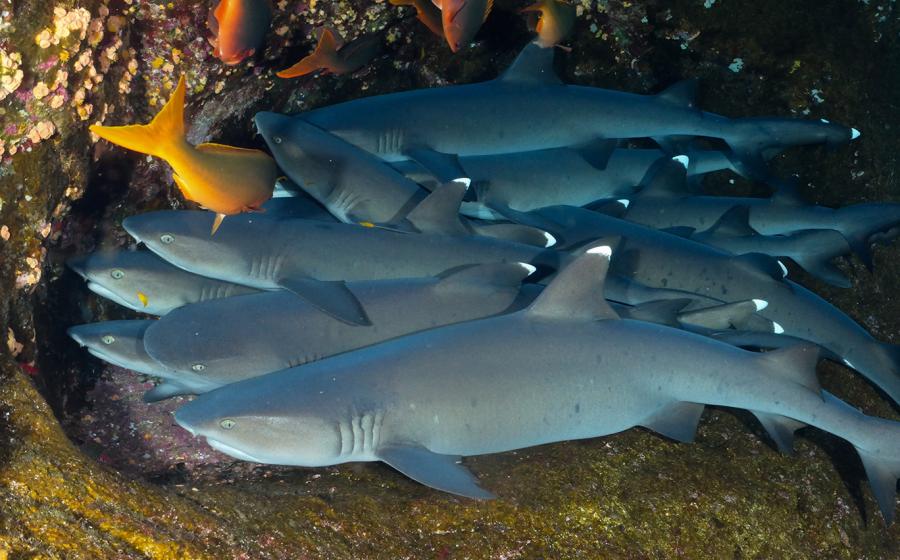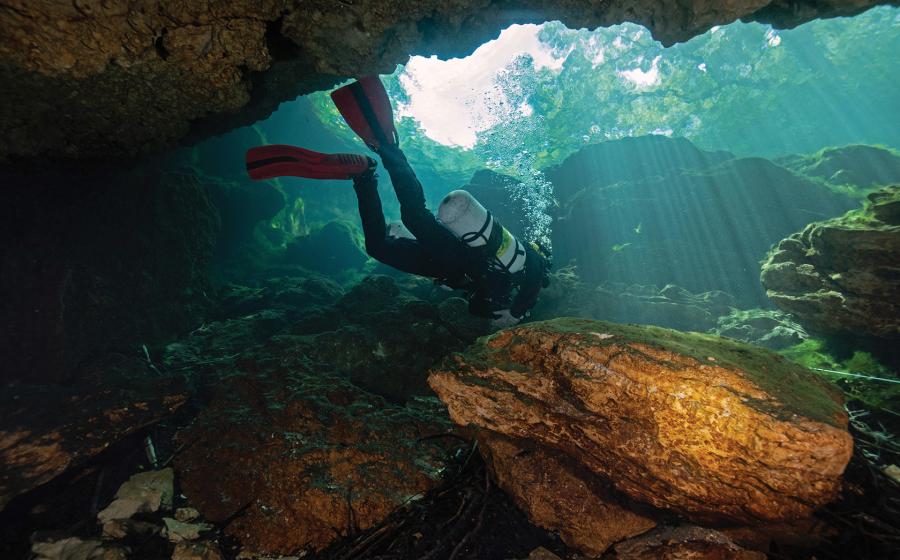Facing Fear With Beatrice Rivoira: On Openness and Vulnerability
Beatrice Rivoira is an accomplished marine biologist, author, dive safety officer and scientific diver based in Abu Dhabi, United Arab Emirates. As a tec instructor and cave diver, she helps marine scientists find new instruments and protocols for their research projects. Her exploration work has included archaeological and biological underwater projects, and she has a special interest in human factors and risk management in diving.
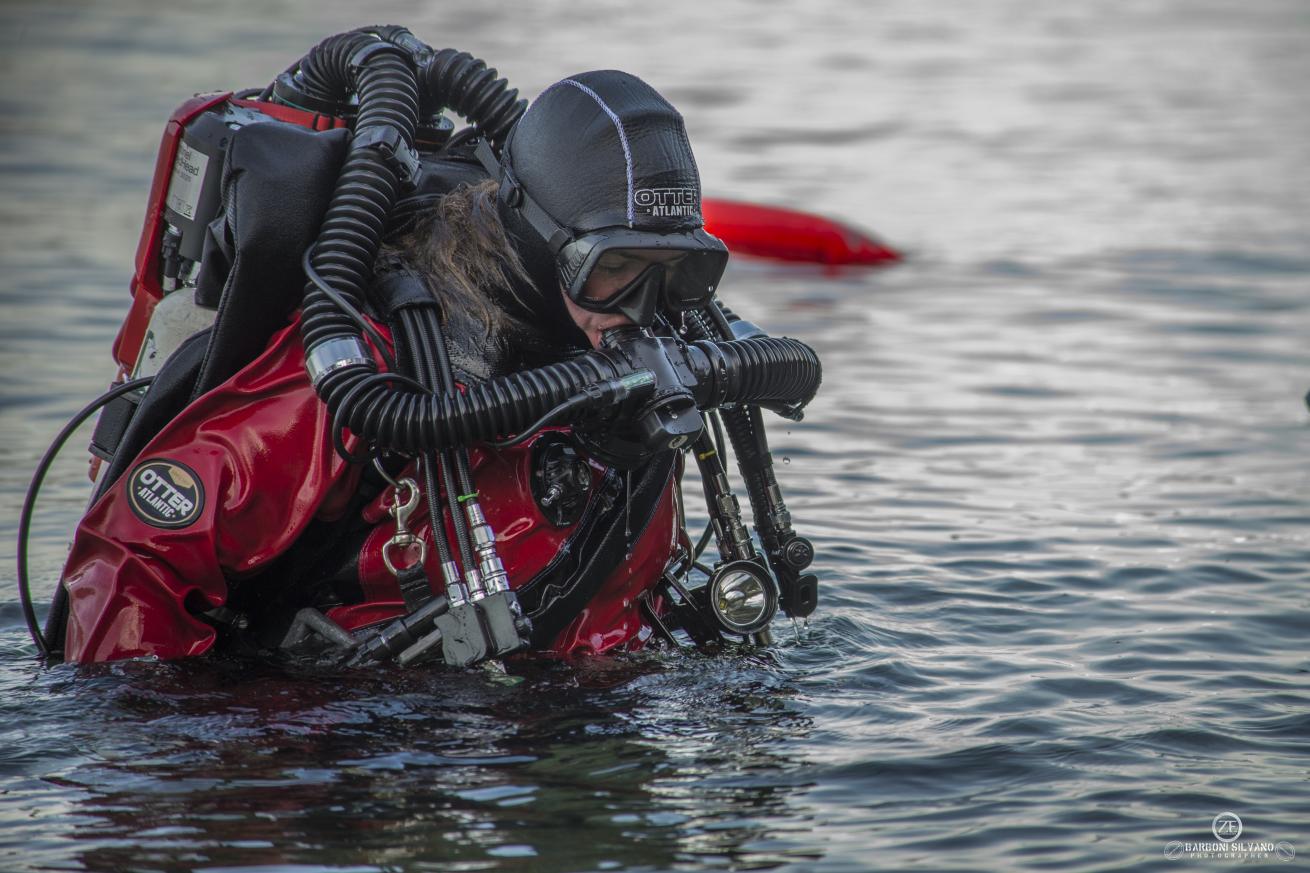
Silvano BarboniIn her role as a dive safety officer and tec instructor, Rivoira openly shares with her students and colleagues how her own mistakes have helped her become a better, safer diver.
What initially drew you, or what still draws you to exploration work?
I guess I'm just a curious person. I think it has always been there, even as a kid. So in diving, I think it was just another progression. To me, I just wanted to see more and more. And any kind of environment does the trick; it could be a river, it could be a lake or dam, it doesn't matter. And caves were just another part of that. So I think there is also that feeling of privilege when you find an area that nobody has seen before, it doesn't matter if it's “just rocks,” it's the mystery. It’s like when you're a kid finding the small toys in the chips bag. It's not gold, but you don't know what is coming. And it's that uncertain feeling that is fascinating to me.
The study of human factors in diving focuses on how people’s abilities, decisions, relationships and awareness affect safety and dive outcomes. How did you first become interested in this idea?
About 12 or more years ago I found this website online with all these diving accident and incident reports and started reading them. I found them interesting because you can learn and try to put yourself into a situation and imagine what you could have done in the same situation. Years after I found out that Gareth [Lock] was behind that website, and so when he came out with [his book] Under Pressure: Diving Deeper with Human Factors, it was already something I was interested in, without knowing it was called “human factors.” And I think it just applied to me. I do have a logicak mind, but also a lot of empathy, so I always try to understand why the buddy or student is having difficulties and how they can overcome them. My diving in general, but especially cave diving, has been massively affected by all of this.
How have human factors affected your team culture and dive safety?
During my training, I was usually the youngest one and, more often than not, the only girl. That’s changing, but at the time, it was like that. You always felt like you needed to demonstrate more, so you were sometimes skeptical about sharing when you were not feeling comfortable or had made a mistake. When I started teaching, I saw that the students were making the same mistakes. It was like, “You know what, I did the same thing.” So it started like that, and then I began sharing a bit more. During my first class with Phil Short, he told me, “It's okay to say I don't know.” It was such a simple statement but so powerful. It means, rather than hiding a mistake or feeling sorry about it, let's go over it and see what happened, what you felt, and how we can use it as a learning step. This changed how I interact with students. I always try to push myself to be vulnerable and share things I wasn’t announcing enough. I say, “You know, I did the same things along the way, or something even worse sometimes.” This shows that it's not just them doing it wrong; it’s everybody making mistakes.
Related Reading: The Importance of Women in Diving and Conservation
How do you know when to push through fear or anxiety versus when to call the dive?
One of my instructors once told me, “Never do a dive that you wouldn’t do alone” (excluding training dives). This doesn’t just mean you can go along with the dive; it means that you are on the spot. You need to be prepared to face whatever the dive brings so that if something happens, you’re not relying on anybody else to do something—you’re ready to take action.
It's important to understand why you feel uncomfortable. Because it might be something you can work on. People don't like bad visibility; you can work on that. You can choose your training environment and slowly build experience until you feel comfortable. When it's something more psychological, I try not to push too much. They say if you feel that something is wrong, then something is wrong. Sometimes I try to think, “What can I do if these things get worse? Or what kind of effect is this going to have on the people I'm diving with? Is it something that I can manage?” If [my discomfort] creates an unsafe situation, then it's better to call it off.
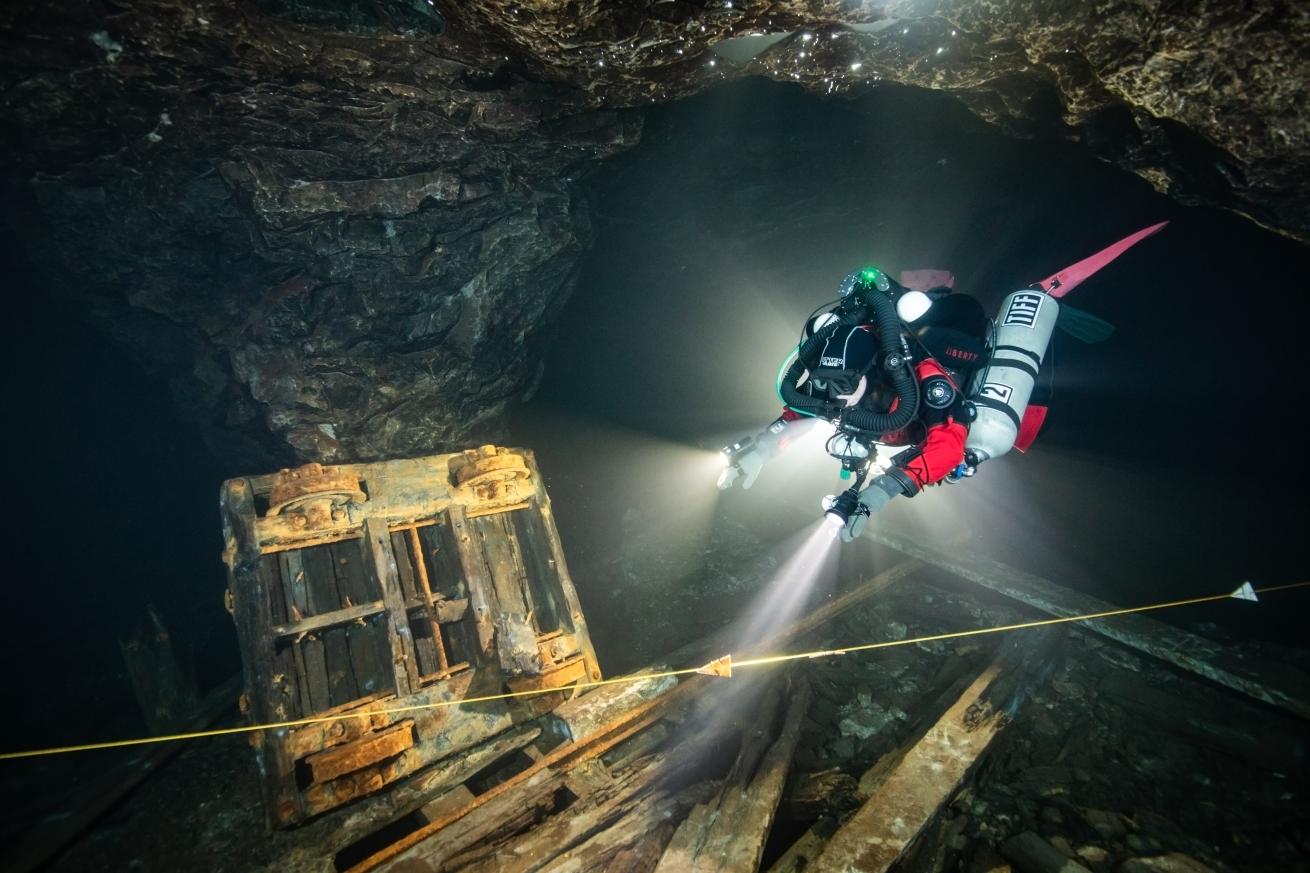
Gatien CosendeyRivoira spots an old cart used for hauling materials in a now-flooded Swedish mine.
What advice would you give to someone who wants to train their mind to conquer fear?
To train your mind to conquer fear, you need to try to create situations where you can experience fear in a safe way. So, you may need to do it with a person that you really, really trust, in a controlled environment, so that you get accustomed to it. It doesn’t mean that it’s going to go away. But if you get accustomed to that feeling you can slowly build up space to react even if you’re afraid. A process that helps me a lot is visualization. I find a quiet place, a quiet moment, and I just go through everything that I’m about to do, starting from moment zero. At some point, you get enough experience to start visualizing things, because you get an idea of how things could be. Then you do the real thing, and when you realize that it matches well with what you've already imagined, it just makes it easier.
What is something you used to be afraid of that you aren’t anymore?
I started diving in the sea, and after a few years, I moved back to the lakes. The lakes were a completely different environment—cold, muddy, and really dark. It can be disorienting, and it was a situation I was not used to dealing with. At the beginning, the complete loss of visibility was very uncomfortable for me, so I started working a lot with my eyes closed or with a [blackout] mask to rely more on sensations. This included the feeling of my equipment and finding small things to help me focus and not let my mind waver. Gradually, the discomfort went away, which also paid off in cave diving. Now, I’m not saying that I don’t care, but it’s a different approach.
Related Reading: How Important Is Your Dive Medical Questionnaire?
What is a limiting belief that you are still holding on to?
I think it's the classic imposter syndrome. Sometimes, you're like, I'm not sure I should be here. But if you find the right people, then you realize that maybe you do deserve a try, you do deserve a small place at the table. By sharing and overcoming that fear, you can say, "Okay, let's give it a try. Let's join this project. Let's do it." Then you realize that you actually have the skills to do it, that you've learned new skills, and now you're even more capable and comfortable.
I think it will be like that for me my whole life. We always see the tip of the iceberg of what others are doing. You see the success, but you don't see the failures. For yourself, you know all the fears, all the insecurities. I believe most people have these kinds of feelings, and I certainly do.
If you could talk to a younger version of yourself, what advice would you give her?
Just do it. Throw yourself out there and experience new things, new projects and new environments. Failing is part of the process. I wouldn't have reached what I can do now without failing a lot. So I wouldn't want to take that away from a younger version. Sometimes I still need people to give me a little push. I would just say leave the fear on the side and take every opportunity that you can, and do not stop, because I'm pretty happy with what I've done up to now.

